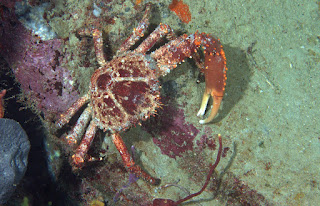Benefits of the Man and Biosphere Reserve

As more and more Trinis are holidaying in Tobago under lockdown, tourism operators refurbish property and investigate the potential in the latest gateway to opportunity, the UNESCO Man and the Biosphere Reserve (MAB) designation for Northeast Tobago. Pat Ganase talked with Aljoscha Wothke a Director and CEO of the Environmental Research Institute Charlotteville (ERIC) who took the lead in coordinating the application on behalf of the Tobago House of Assembly and Government. Here are Aljoscha’s thoughts on “the tool that MAB should be.” Pirates Bay, where moorings will be located away from the reef. Photo by Pat Ganase RECOGNITION OF TOBAGO’S UNIQUE OFFERINGS Trinidad and Tobago is proud to be the location of one of the recent Man and Biosphere Reserves designated in October 2020. Northeast Tobago is the largest site in the English-speaking Caribbean islands, some 83,488 ha with a marine area of 68,384 ...


